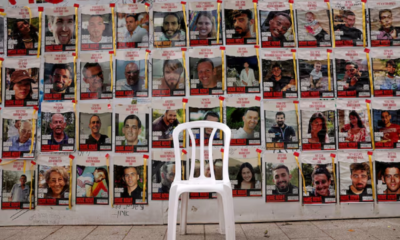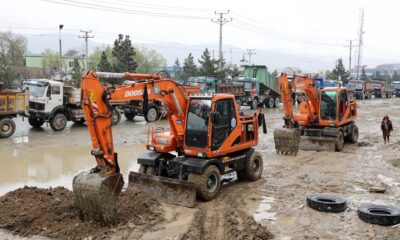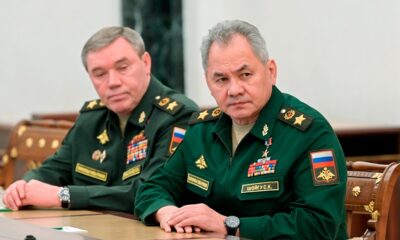Regional
After Iran, Saudi Arabia to re-establish ties with Syria, sources say
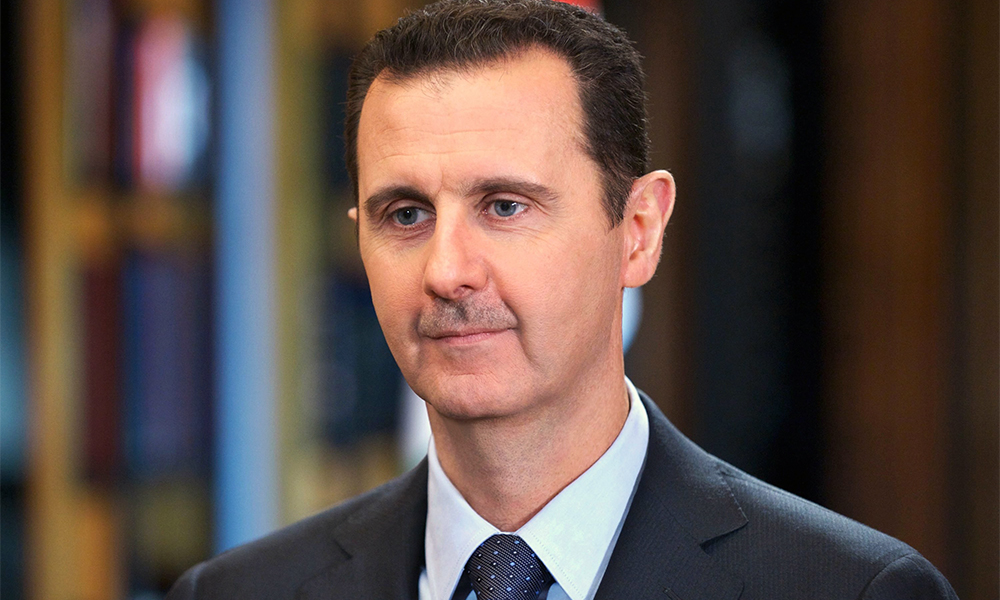
Syria and Saudi Arabia have agreed to reopen their embassies after cutting diplomatic ties more than a decade ago, three sources with knowledge of the matter said, a step that would mark a leap forward in Damascus’s return to the Arab fold, Reuters reported.
Contacts between Riyadh and Damascus had gathered momentum following a landmark agreement to re-establish ties between Saudi Arabia and Iran, a key ally of President Bashar al-Assad, a regional source aligned with Damascus said.
The re-establishment of ties between Riyadh and Damascus would mark the most significant development yet in moves by Arab states to normalize ties with Assad, who was shunned by many Western and Arab states after Syria’s civil war began in 2011, Reuters reported.
The two governments were “preparing to reopen embassies after Eid al-Fitr”, a Muslim holiday in the second half of April, a second regional source aligned with Damascus told Reuters.
The decision was the result of talks in Saudi Arabia with a senior Syrian intelligence official, according to one of the regional sources and a diplomat in the Gulf.
The Saudi government’s communication office, the kingdom’s foreign ministry and the Syrian government did not respond to requests for comment.
Saudi state television later confirmed that talks were ongoing with the Syrian foreign ministry to resume consular services, citing a Saudi foreign ministry official.
The sources spoke on condition of anonymity due to the sensitivity of the subject, read the report.
The apparently sudden breakthrough could indicate how the deal between Tehran and Riyadh may play into other crises in the region, where their rivalry has fuelled conflicts including the war in Syria.
The United States and several of its regional allies, including Sunni-led Saudi Arabia and Qatar, had backed some of the Syrian rebels. Assad was able to defeat the insurgency across most of Syria thanks largely to Shi’ite Iran and Russia.
The United States, an ally of Saudi Arabia, has opposed moves by regional countries to normalise ties with Assad, citing his government’s brutality during the conflict and the need to see progress towards a political solution, Reuters reported.
When asked about the rapprochement, a State Department spokesperson said the U.S. “stance on normalisation remains unchanged” and that it would not encourage other countries to normalise ties with Assad.
The United Arab Emirates, another strategic U.S. partner, has led the way in normalising contacts with Assad, recently receiving him in Abu Dhabi with his wife.
But Saudi Arabia has been moving far more cautiously.
The Gulf diplomat said the high-ranking Syrian intelligence official “stayed for days” in Riyadh and an agreement was struck to reopen embassies “very soon”.
One of the regional sources identified the official as Hussam Louqa, who heads Syria’s intelligence committee, and said talks included security on Syria’s border with Jordan and the smuggling of captagon, an amphetamine for which there is a thriving market in the Arab Gulf, from Syria.
Syria was suspended from the Arab League in 2011 in response to Assad’s brutal crackdown on protests, Reuters reported.
Saudi’s foreign minister Prince Faisal bin Farhan Al Saud earlier this month said engagement with Assad could lead to Syria’s return to the Arab League, but it was currently too early to discuss such a step.
The diplomat said the Syrian-Saudi talks could pave the way for a vote to lift Syria’s suspension during the next Arab summit, expected to be held in Saudi Arabia in April.
The United Arab Emirates reopened its embassy in Damascus in 2018, arguing Arab countries needed more of a presence in resolving the Syrian conflict, read the report.
While Assad has basked in renewed contacts with Arab states that once shunned him, U.S. sanctions remain a major complicating factor for countries seeking to expand commercial ties.
Regional
China to host Hamas, Fatah for Palestinian unity talks

China will host Palestinian unity talks between Hamas and its rivals Fatah, the two groups and a Beijing-based diplomat said on Friday, a notable Chinese foray into Palestinian diplomacy amid the war in the Gaza Strip.
Hamas, which controls Gaza, is the group whose fighters stormed into Israeli towns on Oct. 7, killing 1,200 people and capturing 253 hostages. Israel has sworn to annihilate Hamas in an onslaught that has killed more than 34,000 Palestinians.
Fatah is the movement of Mahmoud Abbas, president of the Western-backed Palestinian Authority, which exercises limited self-rule in the Israeli occupied West Bank.
The two rival Palestinian factions have failed to heal their political disputes since Hamas fighters expelled Fatah from Gaza in a short war in 2007. Washington is wary of moves to reconcile the two groups, as it supports the PA but has banned Hamas as terrorists.
A Fatah official told Reuters a delegation, led by the group’s senior official Azzam Al-Ahmed, had left for China. A Hamas official said the faction’s team for the talks, led by senior Hamas official Moussa Abu Marzouk, would be flying there later on Friday.
“We support strengthening the authority of the Palestinian National Authority, and support all Palestinian factions in achieving reconciliation and increasing solidarity through dialogue and consultation,” said Chinese Foreign Ministry spokesperson Wang Wenbin at a regular briefing on Friday, without confirming the meeting.
The visit will be the first time a Hamas delegation is publicly known to have gone to China since the start of the war in Gaza. A Chinese diplomat, Wang Kejian, met Hamas chief Ismail Haniyeh in Qatar last month, according to the Chinese foreign ministry.
The Beijing-based diplomat, who had been briefed on the matter, said the talks aimed to support efforts to reconcile the two Palestinian rival groups.
China has lately demonstrated growing diplomatic influence in the Middle East, where it enjoys strong ties with Arab nations and Iran. Last year, Beijing brokered a breakthrough peace deal between longstanding regional foes Saudi Arabia and Iran.
U.S. Secretary of State Antony Blinken said he discussed with Chinese President Xi Jinping and other officials in Beijing on Friday how China can play a constructive role in global crises, including the Middle East.
Chinese officials have ramped up advocacy for the Palestinians in international forums in recent months, calling for a larger-scale Israeli-Palestinian peace conference and a specific timetable to implement a two-state solution.
In February, Beijing urged the International Court of Justice (ICJ) to give its opinion on the Israeli occupation of the Palestinian Territories, which it said was illegal.
More recently, China has been pushing for Palestine to join the United Nations, which Beijing’s top diplomat Wang Yi said last week would “rectify a prolonged historical injustice”.
(Reuters)
Regional
New UK sanctions target Iranian drone industry

Britain on Thursday announced new sanctions targeting Iran’s military drone industry, in response to Iran’s drone and missile attack on Israel earlier this month.
The measures, taken in co-ordination with the U.S. and Canada, target four businesses and two directors at a network of drone companies with the aim of limiting Iran’s ability to launch drones.
“The Iranian regime’s dangerous attack on Israel risked thousands of civilian casualties and wider escalation in the region,” British Foreign Secretary David Cameron said in a statement.
“Today the UK and our partners have sent a clear message – we will hold those responsible for Iran’s destabilising behaviour to account.”
Britain also said it would introduce new bans on the export of drone and missile components to Iran, seeking to limit its military capabilities.
Last week, Britain imposed sanctions on Iranian military figures and organisations, in another coordinated move with the United States, following Iran’s action against Israel.
Iran launched drones and fired missiles at Israel on April 13 as a retaliatory strike for the attack on its embassy compound in Damascus two weeks prior, raising the risk of further escalation in conflict in the Middle East.
(Reuters)
Regional
Turkey accuses U.S. of double standards over Gaza in rights report
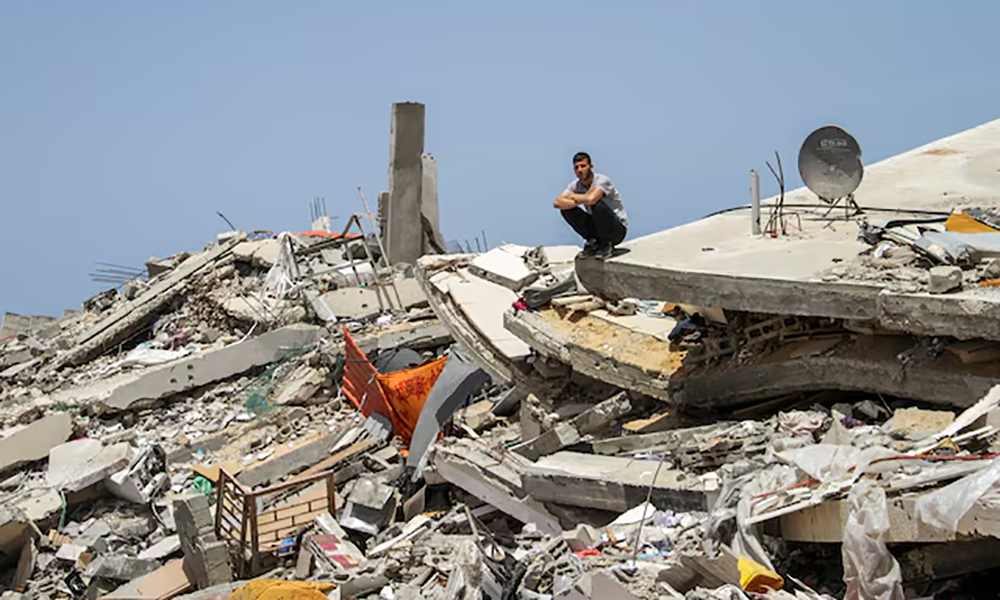
Turkey on Wednesday accused the United States of having a policy of double standards on human rights, saying Washington’s annual rights report failed to reflect Israel’s assaults in Gaza, Reuters reported.
Turkey’s foreign ministry said in a statement it was deeply concerned that the U.S. report did not “duly reflect the ongoing inhumane attacks in Gaza”.
The report was prepared with “political motives, far from impartiality and objectivity”, it said, calling on Washington to cease its “double-standard policy on human rights”.
It also cited U.S. ties with the Syrian Kurdish YPG militia which Ankara deems a terrorist organisation.
Israeli forces have killed more than 34,000 Palestinians in Gaza, according to health authorities there, many of them civilians and children. The enclave has been reduced to a wasteland and extreme food shortages have prompted fears of famine.
Israel launched its assault in response to an attack by the Hamas militant group on Oct. 7 in which Israel says 1,200 people were killed. It denies allegations of deliberately causing humanitarian suffering and targeting civilians.
Turkey has denounced Israel for its campaign in Gaza and called for a ceasefire. It has also criticised Western countries for what it calls their unconditional support of Israel, read the report.
In its report, the U.S. State Department said Israel’s war against Hamas had a “significant negative impact” on the human rights situation in Israel.
On Monday, U.S. Secretary of State AntZony Blinken rejected suggestions that Washington might have double standards over Israel’s record.
-

 Latest News4 days ago
Latest News4 days agoRashid Khan named AWCC’s brand ambassador
-

 World4 days ago
World4 days agoMalaysian navy helicopters collide in mid-air, 10 killed
-

 Sport4 days ago
Sport4 days agoJaiswal ton powers Rajasthan to big IPL win
-

 World4 days ago
World4 days agoNorth Korea officials visit Iran in a rare public trip
-

 Latest News5 days ago
Latest News5 days agoAt least 1,500 families affected by recent floods: IRW
-

 Sport4 days ago
Sport4 days agoMawj Sahil player scores stunning halfway line goal in 1-0 win over Jawanan Wahedi
-

 Sport3 days ago
Sport3 days ago‘Serious talent’ Fraser-McGurk bonds with Warner to light up IPL
-

 Latest News4 days ago
Latest News4 days agoUS report cites ‘significant deterioration’ in Afghan women’s rights last year




